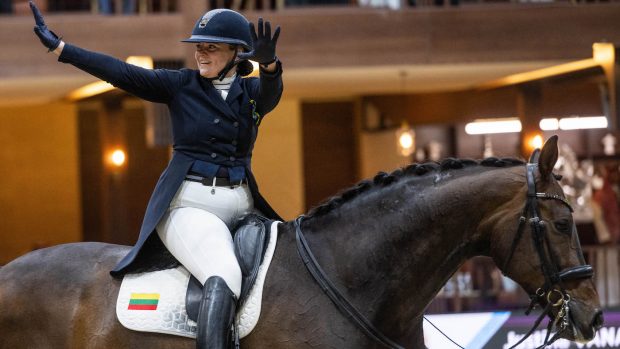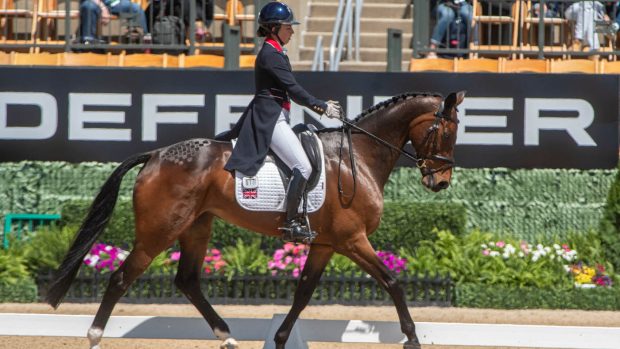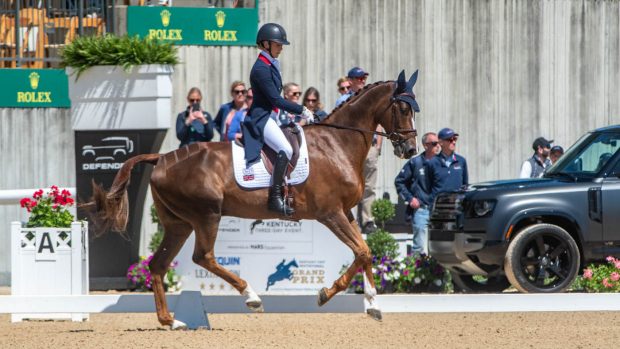A couple from Cornwall have challenged a judges ruling that they must compensate a teenager injured when she was allegedly thrown off their pony.
Aimee Welsh suffered head injuries in 2001 when Matthew and Georgia Stokess pony Ivor allegedly reared and fell on top of her.
At a county court hearing last year, Judge David Tyzack QC found that 14.2hh nine-year-old Ivor had no history of misbehaviour or vice of any kind. But he concluded that Mr and Mrs Stokes were liable for Aimees injuries because they were aware horses can rear.
The accident occurred near the Stokess Little Pengelly Farm in Lower Sticker, where the couple run a dealing yard, when Aimee was 17. The only witness was never found and Aimee herself cannot remember what happened.
She went out for a hack and the pony came back on its own, Mrs Stokes, who has owned the yard for 20 years, told H&H.
But Judge Tyzack concluded, from the evidence of a passing motorist who had spoken to the unknown witness, that the horse reared because he was unwilling to go forward and Ms Welsh was unable to handle the situation.
His finding opened the door for Aimee to claim substantial but as yet undisclosed damages from the Stokeses, or their insurers.
The case reached Londons Court of Appeal last Wednesday, with Susan Rodway QC for the Stokeses noting: The appeal is of considerable general importance to owners and keepers of horses.
Speaking from his farm, Mr Stokes said he and his wife were not negligent at all. He said riders should be aware of the risks before getting on to horses and warned that, if his case were to fail, it would have implications for riding schools across the country. If you get on a horse, you might fall off, he said.
The couple argue that merely knowing that horses can behave dangerously is not
enough to prove liability in an accident.
In her arguments to the Appeal Court, Ms Rodway said: The Stokeses did not and could not reasonably have been expected to know that Ivor would react in the way alleged on a normal, short, hack along roads which he had followed before without incident.
She added that the judges findings that the Stokeses knew Aimee could potentially find herself in a difficult situation should be overturned as they could not reasonably foresee that [Ivor] was likely to rear.
The QC also said Judge Tyzacks finding that the horse had reared was contentious.
Aimee was a National Vocational Qualification student who had been working for the Stokeses for about 10 months. Described in court as a proficient rider, she regularly rode horses in the yard.
The only witness, who subsequently vanished, told a passing motorist the horse had reared. The motorist then provided testimony to the court in what Ms Rodway said was uncorroborated and untested hearsay.
But Richard Stead (for Aimee) said: The judge found that the [Stokeses], as experienced keepers of horses, did have actual knowledge of the characteristic of this horse, being
a normal horse, to rear.
The fact that it had not reared before or after this incident does not take away from the fact that, in particular circumstances, all horses are capable of rearing.
Recognising the importance of the case, Lord Justice Dyson, Lord Justice Thomas and Lord Justice Richards reserved the decision on the matter and will hand down judgement at a later unspecified date.
This news story was first published in Horse & Hound (28 June, ’07)




